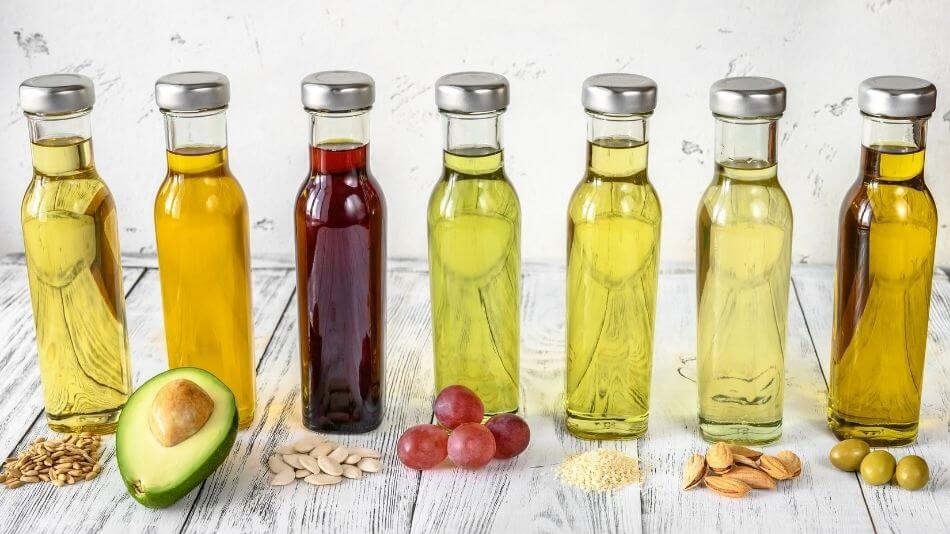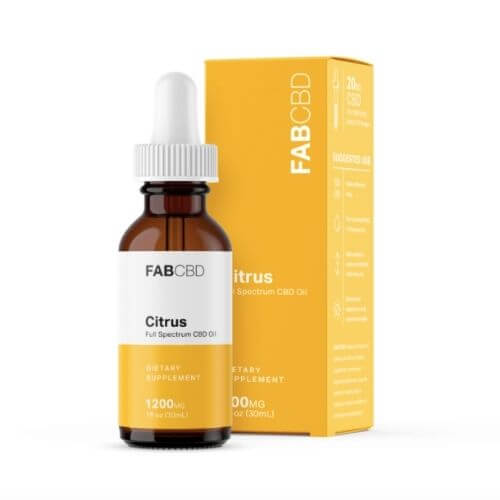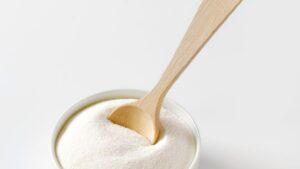Have you ever stopped to consider what else might be at play in your bottle of CBD oil? It’s not all CBD, after all. The oil that carries your CBD can matter.
The best carrier oil for CBD will depend on your individual preferences and goals, but in general, options that are lightweight and easily absorbed into the body or skin are ideal. Popular examples include MCT oil, olive oil, and hemp seed oil, among others.
Depending on the type of product you’re looking for and how it’s meant to be used, some oils may be easier to come across than others. Still, having a good understanding of what to look for and what to potentially avoid can save you a lot of time, money, and effort.
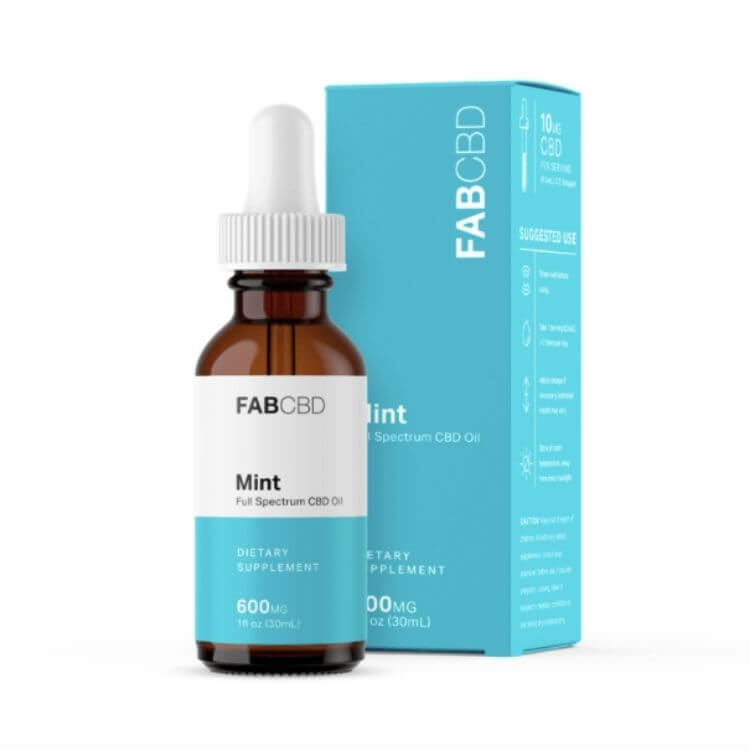
FAB CBD Oil
Why It’s Better Than the Rest
- Unique Production Process Ensures You Recieve a Fresh Bottle Every Time
- 5 Flavors to Choose From
- High Quality Ingredients
- 12 Month Shelf Life
Use Code “FACILITATOR25” for 25% Off ✌🏼
What Are Carrier Oils?
Carrier oils are oils, typically vegetable oils, that “carry” another substance, whether it be essential oils or, in this case, CBD.
You can think of carrier oils as the base of products that include strong additives. These oils generally make up the bulk of the actual physical substance of a product, so their presence is undoubtedly significant.
Carrier oils all differ in the individual benefits they offer, and some are better suited for CBD consumption than others.
With so many carrier oil options to choose from, though, it’s likely that some level of experimentation is necessary to find what works best for you and your goals.
What Are Examples of Carrier Oils?
Common examples of carrier oils include MCT oil, jojoba oil, olive oil, hemp seed oil, and coconut oil, among others.
As mentioned, carrier oils tend to be vegetable oils. These substances are unlikely to negatively interact with other additives or cause adverse reactions for users.
Why Are Carrier Oils Important?
Carrier oils ensure that the key ingredient in a product (CBD, in this case) is diluted enough to avoid causing harm or irritation to a user. When it comes to CBD, though, carrier oils can serve more than one function, and which oil you choose can actually matter quite a bit.
Oils help CBD absorb into the body much better than it would otherwise. This is because CBD and other cannabinoids are fat-soluble, meaning they break down in fats like oils.
So, the presence of something fatty in combination with CBD itself means more of the substance is actually successfully absorbed into the body.
CBD that enters an empty stomach completely on its own, for instance, has very little fat available to break down into. When oil comes into play, though, CBD has the tools it needs to truly release its full potential.
Carrier oils help ensure that your product does what it’s supposed to and save you the trouble of having to take matters into your own hands. Otherwise, it would be very difficult to feel worthwhile or therapeutic effects from your CBD.
In addition, carrier oils bring benefits of their own to the table. Each oil type is associated with numerous health benefits (some based in fact and some anecdotal) including improved skin, softened skin, pain relief, and more.
So, these oils carry both the weight of CBD and their own weight on their backs. They truly do make the difference between a lackluster product and one that’s unrivaled.
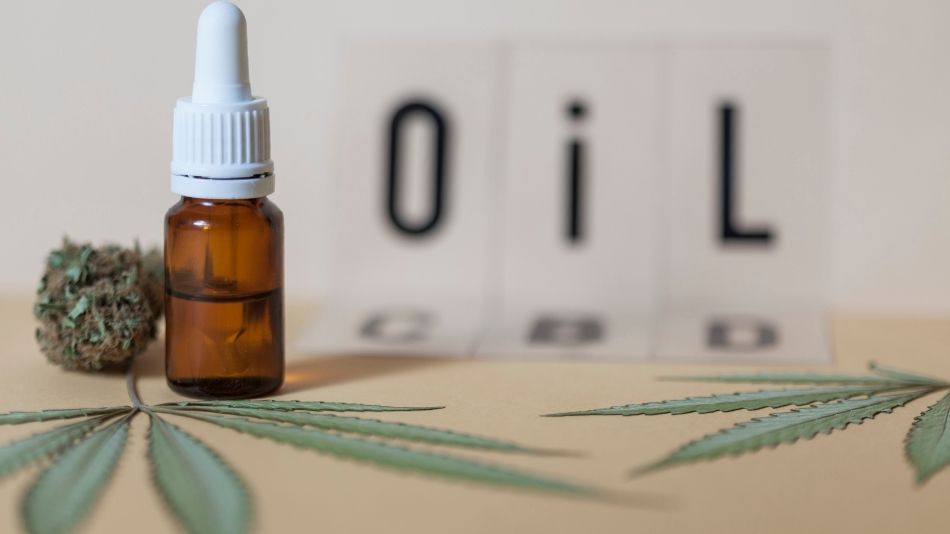
Does CBD Need a Carrier Oil?
Though a carrier oil isn’t necessary to consume CBD in a way that’s beneficial, if you’re looking to consume your product orally, it’s best to use a product that incorporates one.
CBD comes in many different forms, and not all of them are appropriate matches for carrier oil.
However, the CBD that is added into CBD oil products (or similar options) has been extracted from the plant matter it originates from. It’s designed to be added to other products, and the addition of fatty material like oil ensures that it doesn’t lose its efficacy.
Without a carrier oil, it’s also true that the CBD you’re looking to consume has nowhere to go. CBD makes up only a small percentage of the final product you consume; oil dilutes the product enough to make dividing it into multiple doses possible and easy.
Not all CBD products are created equally. Some are even water-soluble rather than fat-soluble.
But, in the vast majority of cases, a carrier oil significantly increases the efficacy and benefits of CBD and is a necessary addition to create a quality product.
List of Popular Carrier Oils and Their Benefits
The most popular carrier oils for CBD may look different than what’s typical for other types of products.
Carrier oils are used in all sorts of industries, but some are better-suited for maximizing all that CBD has to offer than others. Let’s take a closer look.
MCT Oil
MCT oil, or medium-chain triglyceride oil, is commonly used in CBD products thanks to its chemical composition. It can come from a variety of sources, but it most frequently is derived from coconuts.
Medium-chain triglycerides, the stars of the show, are a type of fatty acid that can be broken down quickly and easily by the body. That means that the oil itself is absorbed without much trouble.
Combining CBD with MCT oil, then, allows manufacturers to create a product that allows both the inactive bulk of the oil and CBD itself to be broken down efficiently.
This means your CBD oil will likely deliver stronger results faster than it might otherwise.
Hemp Seed Oil
Because hemp seed oil and CBD itself come from the same plant, many fans of this carrier oil tout its ability to contribute to the entourage effect (which suggests that combining multiple parts of the cannabis plant produces a better experience than each part would individually).
Hemp seed oil is also rich in antioxidants, vitamins, and minerals, all of which make it a great supplement option for those looking to generally improve their physical health.
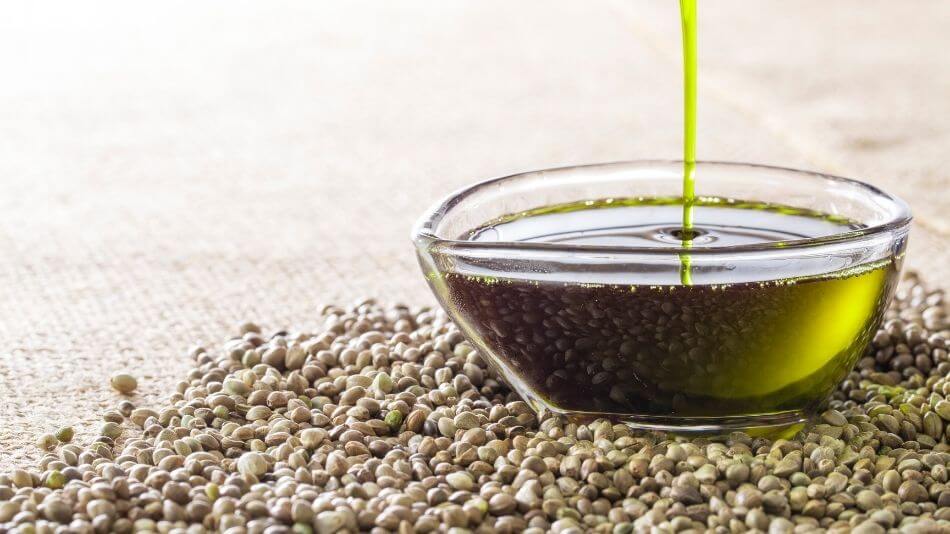
Coconut Oil
Coconut oil is able to be absorbed quickly into the skin or the body, making it an attractive option for those looking to create a CBD oil that’s effective and speedy.
Coconut oil is also known for its moisturizing and healing factors, so it’s a common choice for topical product options.
Avocado Oil
Like coconut oil, avocado oil is known to be great for the skin and carries many vitamins and antioxidants that can keep the body in tip-top shape.
Because it’s much thicker than other oils out there, it tends to be reserved for topical use, though it is possible to find options that are meant for oral consumption.
Sunflower Oil
Sunflower oil is often referred to as a great option for battling off germs and potential toxins, but it’s not as common of a choice for CBD products.
Grapeseed Oil
A byproduct of the winemaking process, grapeseed oil comes from – you guessed it – the seeds of grapes.
This oil is a popular choice for skincare due to its ability to firm the skin, minimize the appearance of wrinkles, and overall promote balance.
It’s easily absorbed and very lightweight, so it’s a great choice for CBD products of all sorts.
Olive Oil
Olive oil is one of the easiest-to-access options out there, and it’s one that’s got plenty of research to back it up, too. Olive oil’s benefits, including high levels of iron, antioxidants, and other important vitamins, are well-known and understood.
It absorbs quickly into the skin, too, making it an ideal choice for those looking for a CBD topical.
What Is the Best Carrier Oil for CBD?
There is no “best” carrier oil for CBD. Each oil type has its pros and cons, so you’ll need to decide which is best for your personal needs.
The best way to do this is, unsurprisingly, through experimentation and trying out different types of products.
The breakdown of different carrier oils found in this article makes it much easier to predict which option might be best for you based on your goals, but experience is truly necessary to determine your ideal carrier.
How often you consume your CBD and how you choose to do so, among other things, might influence which choice is best for you. Don’t be afraid to try something new; it might offer benefits you hadn’t even considered!
Takeaway: Choose What Works for You
As is the case with many things CBD-related, carrier oils require a degree of personalization and, as a result, trial and error. With so many to choose from, though, you should be able to find one that meets your needs.
Carrier oil does matter, but so too does the source of your CBD or CBD oil. It’s important to shop with brands you trust to commit to the level of quality you expect.
We’ve done some of the hard work of finding reputable and consistently amazing sellers for you. Be sure to visit our directory for product and brand recommendations, information, and other helpful details that make finding CBD that works for you a breeze.
